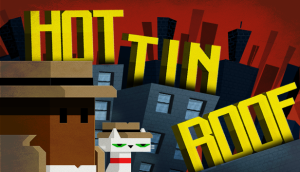An emerging form of games, born out of Minecraft and Dwarf Fortress, has occupied my thoughts lately. It doesn’t seem to have a name yet; it grew out of some Minecraft mods and had its seminal work in Factorio. It’s a cousin, or even sibling, to the idle/incremental game, but usually looks more like a management or survival sandbox game. You could call it a resource management and automation game, or a factory simulator, but I’ll use the term “resource escalation game,” because its primary features are:
- resources to collect, usually from a world you must explore
- crafting of resources into more complex or rich forms
- structures for automation of the crafting, allowing you to take a higher-level conceptual view where you are concerned with the logistics of automation rather than foraging
- and an escalation created by those resources, where your initial low-level needs become inconsequential and the pace of progression is governed primarily by what complexity of resources you have instead of a more abstract research system1

